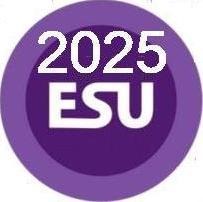Preparation for Humanities Data and Mapping Environments
European Summer University in Digital Humanities
Université Marie et Louis Pasteur, Besançon, France
21.7-2.8.2025
1. Requisite Devices
We assume for the workshop that participants will be able to bring their a laptop with relatively new updates to operating systems and on which they have administrative privileges for software installation. If you have a managed laptop, you may want to try to download the software mentioned below in part 3.
We will work with some web-based resources as well as a download of the long-term release (LTR) version of QGIS Specs for computers are described for all systems in the above link. Generally speaking, a tablet may be sufficient for some lessons, but is not sufficient for QGIS.
As we will be doing some data collection in the city, it will also be beneficial to have a smartphone with a camera. We will leverage location services in order to geotag our images. It is usually under Settings > Location or Privacy > Location. Information about activating location services can be found here for iOS and here for Android. If you have a Chinese phone (Xiaomi, Huawei, Vivo, etc) it may be called “location information,” “positioning,” or “GPS settings.”
In the case that a student does not have a smartphone or a laptop that can run QGIS, we may be able to devise a work around, e.g. working in pairs or manually geocoding. There will only be a few sessions featuring these devices.
2. Make accounts at the following
| service | usage | notes |
|---|---|---|
| for access to drive for some file sharing | perhaps can forego, with reduced functionality | |
| Posit.cloud | sharing of R Markdown files and running code | Choose the free account |
| OSM | edit access to OSM editing and login for UMap | |
| WikiData | edit access | it needs to be a different account from Wikimedia Commons, if you have one there |
| GitHub | for Github pages, hosting web maps | If you already have a GitHub account, there is no need to make another one. If you have your own web hosting, you can use that. If you want to be able to try the agent-coding (see 9a), use your university .edu email and apply for Github Education from a campus location using Settings > Billing and licensing > Education benefits. |
| Recogito | for group annotation | |
| Zotero | for HDME bibliography | optional, unless you want to join the group |
| openai.com | for debugging and some code generation | optional, other genAI interfaces are possible |
3. Downloads
| software | usage | notes |
|---|---|---|
| Github Desktop | for management of files on GitHub | if fluent in git in terminal, not necessary |
| Sublime Text | an easy to use text editor for editing files locally | if you already use another text editor such as Visual Studio Code, you do not need Sublime. The examples we will use in the workshop will be done in Sublime. |
| QGIS | Open source GIS standalone software | Don’t download the regular version, but instead the Long Term Version 3.40.8 ‘Bratislava.’ Mac users will need to heed the “tips for first launch.” |
| Tropy | a CMS for photos |
NB: When making the accounts above, choose the free plans below and feel free to use a burner email account for privacy reasons, if you prefer.
